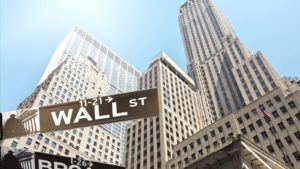Bear markets are never nice. Whether you were caught on the wrong side during 1973–1975, 2000–2002, or in 2008, you felt the pain. We saw more of the same earlier this year, when the novel coronavirus pandemic upended markets, leaving retail investors in the lurch.
With the second Covid-19 wave already upon us, many investors are already rechecking their portfolios, trying to find out which stocks to sell.
And if you are one of those investors looking to offload some risky companies, this article should help make up your mind. For convenience, we’ve narrowed the list of entrants to S&P 500 index constituents that have a bad record of returns for several years now.
You are more than welcome to stick with these companies if you believe in their long-term potential. But proceed with caution if you want to make sure you’re not burned.
Without further ado, these are the four stocks to sell before the markets start reacting to the second wave:
- Schlumberger (NYSE:SLB)
- CBRE Group (NYSE:CBRE)
- CBL & Associates Properties (NYSE:CBL)
- Apple Hospitality REIT (NYSE:APLE)
Stocks to Sell: Schlumberger (SLB)

5-Year Gross Margin Growth Rate: -11.3%
Schlumberger is an oilfield services company. Understandably, the company is going through a rough patch due to the destruction of oil and gas demand worldwide. Unfortunately, oil services firms like Schlumberger will continue to suffer for the foreseeable future, as it will take a lot of time for demand to come back, especially with several countries already suffering from a second wave.
That kind of pessimism is translating into the company’s numbers as well. In its most recent quarter, Schlumberger posted its third-straight quarterly loss. In North America, in particular, we see that the company is faring the worst, with revenues falling from to $1.16 billion, from $2.85 billion a year earlier. Although the company is a multinational, it relies a lot on the U.S. market, and with the long-term trend negative there, it has the tough task of clawing its way back from here.
Schlumberger, Baker Hughes (NYSE:BKR), and Halliburton (NYSE:HAL) are doing what they can to reduce cash burn in this environment. Gross margin of 12% was up about 400 basis points compared to Q2, but the company needs the U.S. economy to open up before it can restart growing.
At this stage, all the companies can hope to do is survive. That’s why SLB stock is not a multi-bagger by any means, despite record low valuations.
CBRE Group (CBRE)

5-Year Gross Margin Growth Rate: -10.8%
Chances are that if you work in or around real estate, you’ve heard of CBRE Group. American commercial real estate services and investment firm is the largest of its type in the world. Normally a secure investment, it certainly runs into some tough headwinds recently due to the pandemic.
Shares of the company fell 0.3% in pre-market trading on Oct. 29 after Q3 earnings showed EPS declined 7.59% over the past year to 73 cents, which beat analyst estimates of 42 cents. The company’s Global Workplace Solutions (GWS) is helping the company navigate troubled waters at this stage. However, the major casualty is the company’s largest segment, Advisory Services, which did not do well in the last quarter. Adjusted EBITDA was down 31.6% YoY.
A larger concern is whether the weakness in demand is temporary or is part of a secular trend. Several companies are supporting permanent work from home, and e-commerce is skyrocketing during this time. That means less need for physical space, a trend that will hurt CBRE’s bottom line. Whichever way you slice it, CBRE stock is a risky proposition at the moment.
CBL Property & Associates (CBL)
5-Year Gross Margin Growth Rate: -0.8%
Our next entrant on the list is the latest casualty of the pandemic. CBL & Associates Properties is a self-administered real estate investment trust (REIT) that focuses on shopping centers. The REIT is in the final stages of filing for voluntary Chapter 11 bankruptcy.
Under the agreement, some $1.5 billion of debt will be eliminated. In exchange, creditors will get $500 million in unsecured notes, $50 million in cash, and about 90% of the company’s new common stock. Whether existing stockholders will get anything is up in the air. The company has said it “will ultimately be determined in connection with the court-supervised Chapter 11.”
CBL intends to use roughly $220 million of cash and securities available for sale to fund the restructuring process.
The fact that the REIT is in this state is not surprising. The majority of its tenants have requested rent relief, either through deferrals or abatements. The company will have to wait until 2021 to collect on these payments. And that too will depend mainly on how long it takes for the economy to reopen and start whirring again.
And despite the proposed bankruptcy, CBL stock hasn’t experienced an increase in momentum trading. As InvestorPlace contributor Alex Sirois points out, several companies on the chopping block have seen increased investor interest after filing for Chapter 11, mainly due to Robinhood traders. But that hasn’t happened with CBL stock, further cementing its reputation as an extremely risky proposition.
Apple Hospitality (APLE)

5-Year Gross Margin Growth Rate: -0.4%
We polish off this list with another REIT: Apple Hospitality. Clearly, it’s not great to be involved with real estate at this point. With consumer incomes taking a hit and shelter in place orders across several states, hotels aren’t really firing on all cylinders.
Unfortunately, Apple Hospitality is invested in a portfolio of upscale, select-service hotels, which remains its principal business source.
APLE stock is down 36.81% year to date and will continue to lose steam due to the oversupply (or lack of demand) in hotel rooms. Nonetheless, if you want to pour your capital into a high risk/high potential REIT, APLE stock is trading at record lows at this point.
But if you are worried about the second wave and what it will do to occupancy rates, it’s best to play it safe and pass on this one for now.
On the date of publication, Faizan Farooque did not have (either directly or indirectly) any positions in the securities mentioned in this article.
Faizan Farooque is a contributing author for InvestorPlace.com and numerous other financial sites. He has several years of experience analyzing the stock market and was a former data journalist at S&P Global Market Intelligence. His passion is to help the average investor make more informed decisions regarding their portfolio.

